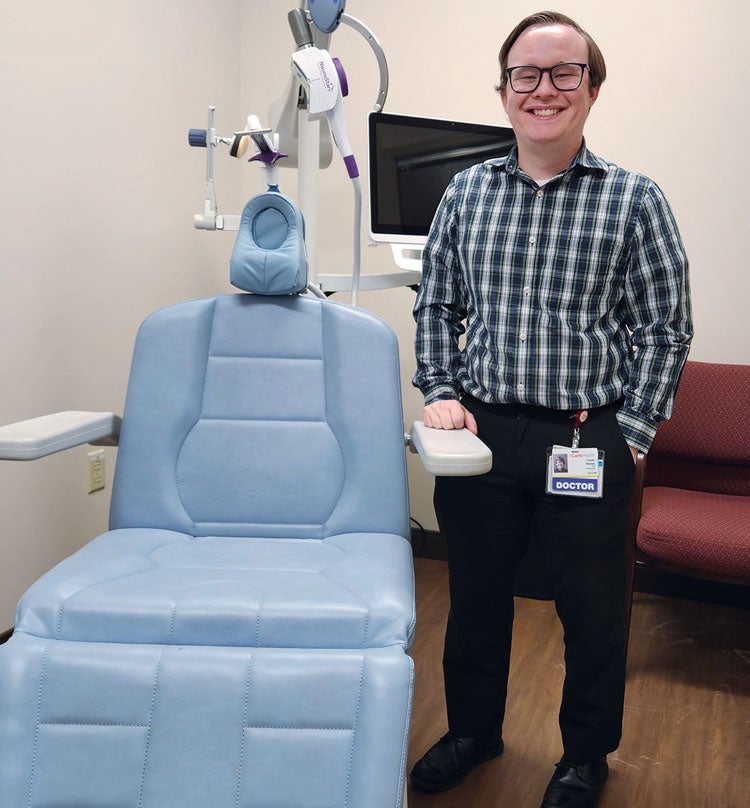Pathways: TMS Treatment Provides Another Option for Patients with Depression
TMS Treatment

Transcranial magnetic stimulation (TMS) is a non-invasive procedure that uses magnetic fields to stimulate nerve cells in the brain to improve the symptoms of moderate to severe depression. Using electrical currents to stimulate deep parts of the brain, TMS may be an option for patients when medications have been ineffective or caused side effects. Approved by the US Food and Drug Administration (FDA), TMS may be used in patients ages 15 to 70. While most commonly used in the treatment of depression, TMS is also effective for obsessive compulsive disorder (OCD). TMS treatments occur in a comfortable chair that looks similar to those found in dentists’ offices. A magnetic coil is placed near the patient’s head. Each treatment lasts about 20 minutes while the patient remains awake and alert. Patients may read, watch TV, or check their phones during the procedure. Most patients wear earplugs to stifle a rapid tapping sound, but less than 5 percent experience any discomfort.
Leading this treatment option for the UICOMP Department of Psychiatry is Caleb Weiss, DO, associate professor of clinical psychiatry. “We believe increasing brain stimulation increases the production of neurotransmitters which ultimately improves the symptoms of depression,” Weiss explains. “This provides an option for those patients who have been through medical trial after medical trial but found that nothing helps or the side effects are not tolerable. Medication is not the be all, end all, and therapy is not the be all, end all. So, TMS provides another opportunity for our patients to find the treatment that works best for them.”
Weiss shares that offering TMS provides an additional benefit for residents. “As an educator, I value offering TMS experience to our residents as well. When they complete our residency and enter their own practice or clinical setting, their training here with TMS offers them additional experience they can carry forward. It’s like a Swiss Army knife,” Weiss says.
Read the Full Issue of Pathways
This article is part of the Summer 2024 issue of Pathways magazine.